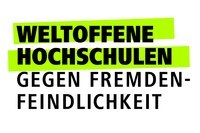
The module consists of lecture (2 SWS) and tutorial (2 SWS) - Language: German
Goals of the module
The students know central concepts and methods of the subject marketing such as buyer behavior, market research, segmentation, positioning. They are able to analyze and solve conceptual and practical problems with the help of marketing instruments, e.g. the conception of a marketing plan or the development of a marketing mix for a new product.
Target group for the course
B. Sc. Information Management/ Digital Business Management
B. Sc. Computer Science
B. Sc. Business Informatics
2-subject Bachelor Management and Economics
B. Sc. BioGeoSciences
B. Ed. Economics and Labor
Lecture times
Wednesdays, 10:15 - 11:45 a.m., in room D 028.
Practice times (from the 2nd week of lectures)
Group 1: Monday, 12:15 -13:45, in room M 001
Group 2: Monday, 14:15 -15:45, in room F 312
Group 3: Tuesday, 12:15 - 13:45, in room F330
Group 4: Wednesday, 14:15 - 15:45, in room G423
The information about the course times will be sent to you again by e-mail, provided that you have registered for the course in KLIPS.
Exam dates
Examination date (main exam): August 12, 2025 at 10 am in room D 028
Examination date (post-exam): September x, x at x pm in room x
Exam date (combined exam BWL & Marketing): September x, 2025 at x pm in room x
Details about the exam registration will be announced in time during the lecture. If you have any questions, please contact Mr. Fabian Brunet (Mail: fbrunet@uni-koblenz.de).
Contents of the lecture
Basics of marketing
Consumer behavior
Market research
Strategic Marketing
Customer management
Marketing mix
Implementation
Course materials
All necessary course materials are provided on the learning platform OLAT.
Access to the learning area will be provided to all students registered for the lecture during the first week of the lecture. If you have problems with the access data provided or have not received access, please contact Mr. Fabian Brunet (fbrunet@uni-koblenz.de).
Recommended reading
Homburg, C. (2020): Marketingmanagement, 7th edition, Springer Gabler Verlag, Wiesbaden
Kotler, P./Armstrong, G./Harris, L. C./Piercy, N. (2019): Fundamentals of marketing, 7th ed, Hallbergmoos.
Assigned teachers











